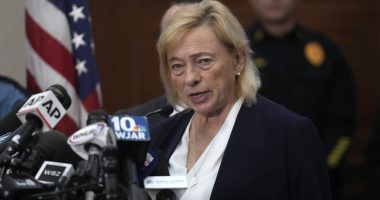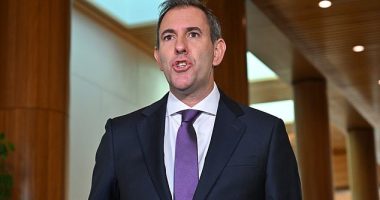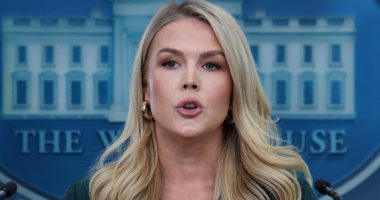The World Bank is one of the cornerstones of the liberal international order that America built after World War II.
The bank is also one of the reasons this American-led system finds so few friends in the developing world today.
Consider Russia’s invasion of Ukraine. The Ukrainians are valiantly fighting for their homeland. But Washington does not see the conflict in terms of rival nations and opposing nationalisms — one aggressive, the other defensive.
Our leaders instead think of the conflict as a war for the liberal international order. And they expect the international community to support Ukraine.
When developing countries like India and Brazil prove reluctant or unwilling to do so, Washington is appalled. But look at what liberal international institutions like the World Bank mean for these countries.
Ajay Banga, an Indian businessman who became a naturalized US citizen in 2007, is the Biden administration’s nominee to become the World Bank’s next president.
Yet Banga, who has experience with everything from launching fast-food franchises in India to serving as CEO of Mastercard, is under fire from development experts for having an inadequate background in climate policy.
Before being nominated for the World Bank, Banga was co-chairman of the Partnership for Central America that Vice President Kamala Harris launched as a private-public partnership in 2021. His crony credentials are unimpeachable.

And he was a dutifully green CEO, always alarmed about warmer weather. “Hectares of forests are on fire at any given time. Trillions of tons of glacial ice are melting. Temperatures are rising,” a Financial Times profile quotes him writing at Mastercard in 2020.
Yet within the field of international development, insiders demand more. One anonymous expert complained in the same FT profile, “The US administration has been messaging this would be a climate person.” Instead, Banga is a finance man.
The controversy doesn’t jeopardize Banga’s appointment. Rather, it signals the supreme priority that the technocrats of the liberal order place on climate change.
The anonymous snipes at Banga are intended not to stop him but to reinforce an ideological pecking order — the business side of development must take second place to the green politics of development experts.
The World Bank, founded in 1944, has always been an arm of American policy, with particularly close ties to US foreign policy.
Read Related Also: Mark Wahlberg Once Tried To Erase His Criminal Record (& It Didn't Go Well)
Past presidents include one of the masterminds of the Vietnam War, former Secretary of Defense Robert McNamara, and an architect of the Iraq War, former Deputy Secretary of Defense Paul Wolfowitz.
What we call the liberal international order looks, to the nations we once called the Third World, a lot like simple imperialism.
Before the bank took up a mission to save the planet from warming, it was already seen by developing nations as a dangerous patron. Whenever a bank offers loans to recipients who are not creditworthy, the recipients are apt to take on too much debt.
The World Bank perpetuates on a global scale the kind of bad decision-making that led to the 2008 financial crisis at home and abroad.
What’s a poor country to do when it’s offered easy money to redirect development away from traditional industry in favor of the green schemes preferred by Western and Western-educated elites?
For billions of people in Latin America, Asia and Africa, the liberal international order means submitting to American ideological obsessions in return for loans that may in fact result in catastrophic malinvestment and crippling debt.

Even when the worst doesn’t come to pass, beneficiaries of our largesse resent the inherent inequality of the relationship. Our generosity — in the service of our own elite aims — only stokes anti-Americanism.
The developing world is entitled to much the same industrial growth that raised the West to the pinnacle of prosperity.
Climate is not the crisis that hunger or political insecurity is. Economic disorder lies at the root of those greater, immediate threats. But Western money insists green ideology take priority.
We in the West enjoy so much wealth and security that we can afford to worry about weather projections. The rest of the world does not have that luxury. Yet the liberal international order reflects our anxieties rather than other nations’ needs.
The way the World Bank works, is it any wonder if India or Brazil chooses to sit out a call to arms for the international system?
Daniel McCarthy is the editor of Modern Age: A Conservative Review.







